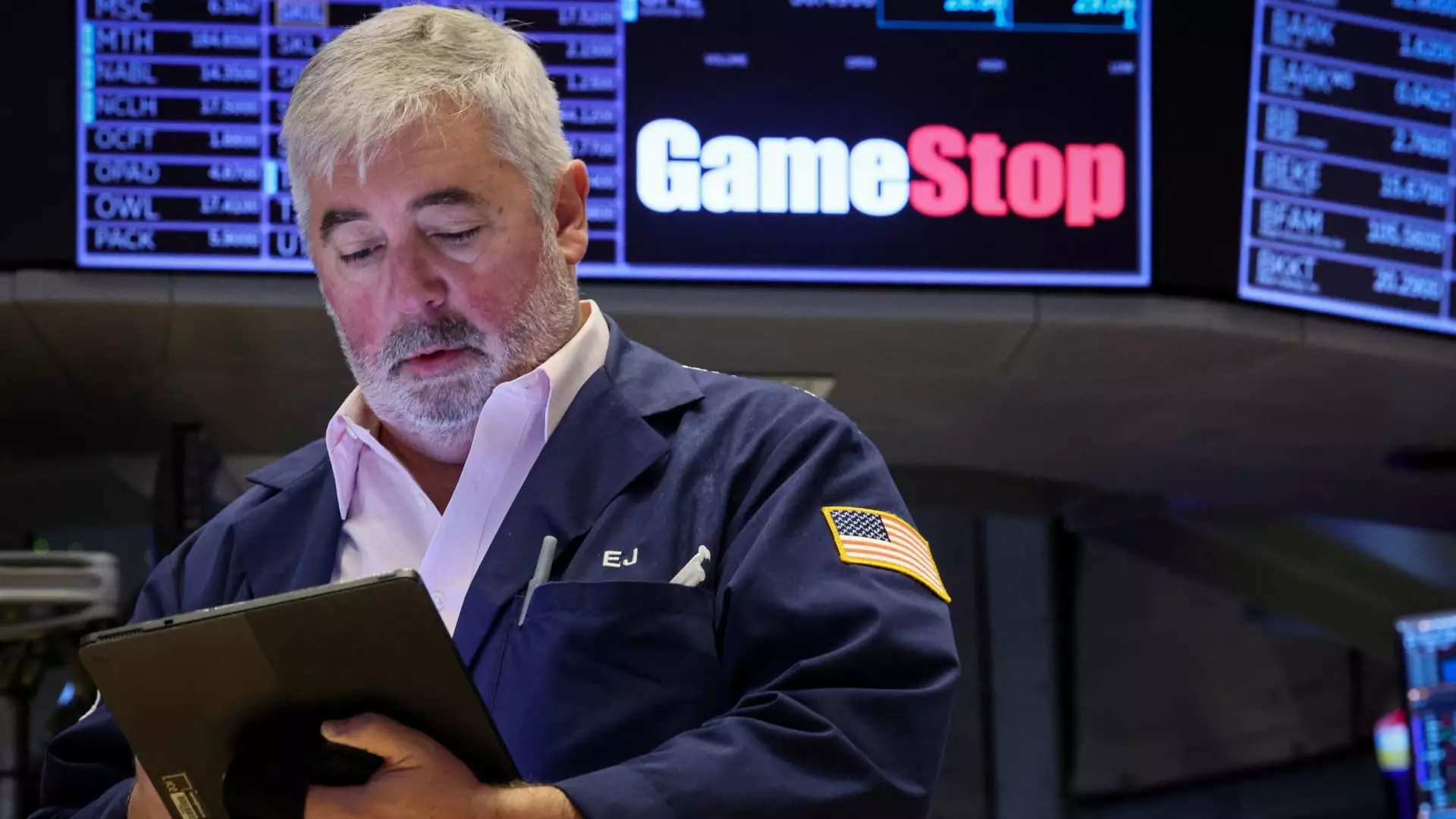GameStop has ignited conversations once again with its audacious announcement. The video game retailer, already teetering on the edge of scrutiny, revealed plans to raise an ambitious $1.3 billion through convertible senior notes—all in a bid to plunge into the unpredictable waters of Bitcoin investment. While some may view this as a visionary leap forward into the digital asset realm, I see it as a reckless gamble that underlines a fundamental misunderstanding of what financial sustainability really entails.
This week’s roller-coaster ride saw GameStop’s stock drop over 15% following the news, and if you think this tumble is merely a minor blip, think again. This sharp decline comes right on the heels of a nearly 12% rally, a classic reflection of market volatility stemming from speculative trading rather than any substantial operational achievements. The board’s unanimous decision to pursue cryptocurrencies appears less like corporate strategy and more like a desperate attempt to ride the coattails of the crypto boom, reminiscent of the infamous MicroStrategy.
Valuation vs. Reality
Despite being a meme stock that captured public attention, GameStop’s current valuation stands at a staggering $12.7 billion—an evaluation that bears little correlation to its cash flow viability or market fundamentals. The plan to issue 46 million additional shares for this convertible debt only serves to balloon the company’s valuation. Wedbush analyst Michael Pachter highlights this critical point: GameStop is trading at more than double its cash holdings, a precarious position for investors who might be holding their breath, hoping that this meme phenomenon will last for five years.
The troubling essence of GameStop’s approach rests upon a misguided belief that crypto will somehow enhance its long-term value. While MicroStrategy has strategically leveraged its assets to tap into Bitcoin’s potential, the difference lies in the inherent valuation metrics. MicroStrategy is encumbered less by its valuation when compared to its holdings, whereas GameStop’s escapade into Bitcoin feels more like a blind leap than an informed strategy.
Faith vs. Financial Prudence
Pachter’s outlook paints a grim picture—local analysts believe the stock will likely drift lower before the issuance of the convertibles, particularly since investors will receive zero coupons and must have unwavering faith in the sustainability of the GameStop meme culture. Faith, however, doesn’t substitute for fiscal responsibility. Speculative trading based on narratives rather than grounded financial considerations is an unsustainable roller coaster that invites trouble.
Investors must ask the hard questions. Is this a sustainable business model, or just a trend that will fade like countless others? GameStop’s plunge into cryptocurrency could end up dragging not just its share price but also investor sentiment down with it. In a world still grappling with the aftermath of the pandemic, companies should prioritize stability, innovation, and long-term growth over fleeting trends aligned with momentary market fervor.
This isn’t simply about riding the next speculative wave; it’s a clarion call for companies, especially those already on shaky ground, to exercise caution. The question remains: will GameStop learn from history, or will it continue down a perilous path in pursuit of a digital mirage?

